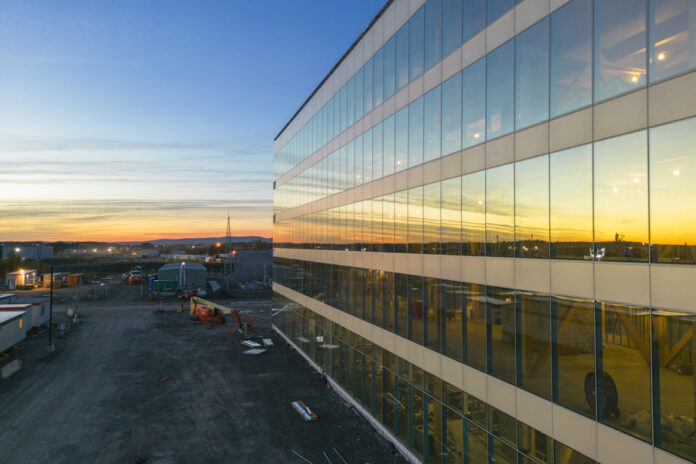While artificial intelligence (AI) consumes astronomical amounts of often polluting energy, two Quebec partners, Micro Logic and QScale, may have found an enticing solution: a green data center in Lévis powered by a cloud computing platform 100 % Quebec.
The two partners will announce this Tuesday a collaboration which, according to the press release, “will make Quebec a must in AI around the world”. One of the few cloud computing providers in Quebec, Micro Logic will install in the QScale data center very powerful servers dedicated to so-called “high density” calculations. Very energy-intensive, they are used in particular for training artificial intelligence, as well as simulation for industrial, commercial, scientific and university applications. The facilities are expected to serve the first customers in late summer.
This software solution, praised in an interview by the CEO of Micro Logic, Stéphane Garneau, is based on “a 100% sovereign cloud”, which can therefore guarantee its customers that the data remains under Canadian jurisdiction.
These servers will be installed in the first phase, out of the eight planned, of the QScale data center in Lévis, a suburb of Quebec. This facility is the first in Canada to have received the OCP Ready certificate for its energy efficiency. In particular, it takes advantage of the Quebec climate, a liquid cooling system and a supply block of 142 megawatts of hydroelectricity to offer its customers “80 to 90% reduction in greenhouse gas emissions. “, specifies Martin Bouchard, president of QScale.
“At the end of 2024, beginning of 2025,” he claims, a greenhouse using the heat emitted by the servers will begin operations. You could theoretically grow some 82,000 tonnes of tomatoes there every year.
Important nuance to attract international customers, the data center operated by Micro Logic in the facilities of QScale will be specialized in the processing of data, and not in their storage and their use in real time. In other words, the response time, the “latency” that we are trying to reduce with closer data centers, is less important.
“We offer a solution that almost doesn’t exist anywhere in the world,” said Mr. Garneau. A customer in Great Britain embarked on a process of reducing its GHG emissions, and who needs to process his data, will lose several years of effort if he resorts to installations using fossil energy. »
In an interview, the two CEOs are particularly enthusiastic about the impact that this data processing center could have for Quebec. “Global demand is crazy,” notes Mr. Garneau. We want to ensure that Quebec and Canada have a kind of sovereignty over computer processing. If only the giants of industry control it, what will happen to our companies? […] It’s like an arms race. Like food self-sufficiency, you have to make sure you don’t give it away. »
Mr. Bouchard also believes that this center will be “a big magnet that will attract a lot of projects”. Supply agreements for phase 1 of the center, up to 142 megawatts, are signed with Hydro-Québec. For the rest of things, “we are waiting for certain decisions”, he drops.
Before last February, the state-owned company was required to connect all projects under 50 MW. The government and Hydro-Québec must now jointly authorize projects over 5 MW. “We think we’re ticking a lot of boxes in the new criteria,” Bouchard said.
He acknowledges that a data center is not a great job creator, but insists on its effect on the ecosystem. Stéphane Garneau believes that Micro Logic is a “concrete example” of this impact. “We are at 350 jobs, we will double. The QScale component will create hundreds more jobs,” he said.















